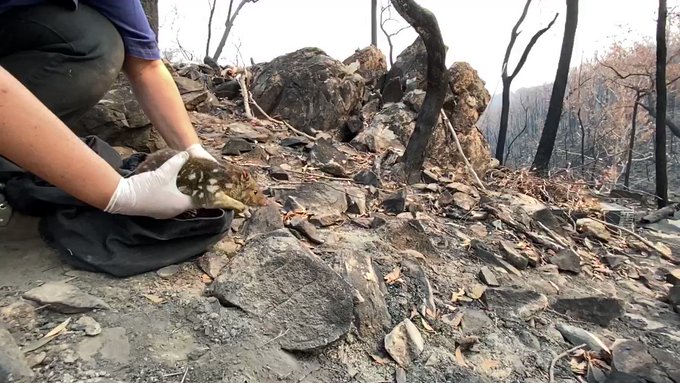As bushfires continue to rage across Australia, experts fear that the country’s unique wildlife is suffering a disastrous blow.

Researchers from the University of Sydney estimate around 480 million animals have been killed by the blazes since they began in September, The Times reports. Among the victims are up to 8,000 koalas – almost a third of the New South Wales koala population – which have perished along the country’s eastern coast.
“We’ll know more when the fires have calmed down and a proper assessment can be made,” Australia's environment minister, Sussan Ley, told the Australian Broadcasting Corporation.
Koalas are one of the hardest-hit species, primarily because they’re slow-moving and live among the forested areas that are being decimated by the fires. Reports from earlier this month detailed grisly scenes of koalas and other native marsupials found disorientated, dehydrated, severely burnt, or – at worst – charred to death.
“The fires have burned so hot and so fast that there has been significant mortality of animals in the trees, but there is such a big area now that is still on fire and still burning that we will probably never find the bodies,” Mark Graham, an ecologist with the Nature Conservation Council, told a parliamentary inquiry, per The Guardian.
Volunteers with wildlife rescue organizations are also seeing significant numbers of other species struggling to escape the flames, including kangaroos, possums, and quolls.
There has also been a number of human fatalities, although the exact figure currently remains unclear.
While the situation is looking increasingly desperate, help is at hand. Port Macquarie Koala Hospital, a small koala hospital in New South Wales, raised over $2.2 million AUD (over $1.5 million USD) through a crowdfunding page. Social media has also been flooded with images and videos of volunteers striving to save Australia’s cherished wildfire.
Meanwhile, the wildfires continue to tear through over 4 million hectares (9.9 million acres) across five states. Bushfires are expected every year during Australia’s summer months, however, the 2019-20 Australian bushfire season has been especially brutal, primarily due to a heatwave that’s seen temperatures top 40°C (104°F) in all six states.
Meteorologists are blaming the freak weather on a little-known climate system called the Indian Ocean Dipole (IOD). Resulting from the rise and fall of sea-surface temperatures in the western Indian Ocean, the IOD can have a significant knock-on effect on Australia’s climate.
Fortunately, Australian Prime Minister Scott Morrison has now returned from his family holiday in Hawaii to help address the infernos, which have been raging for several months.













No comments:
Post a Comment